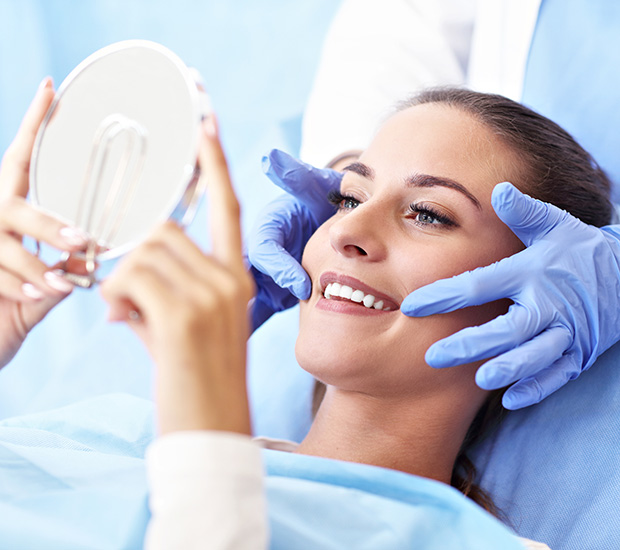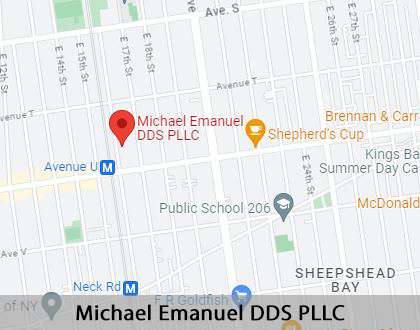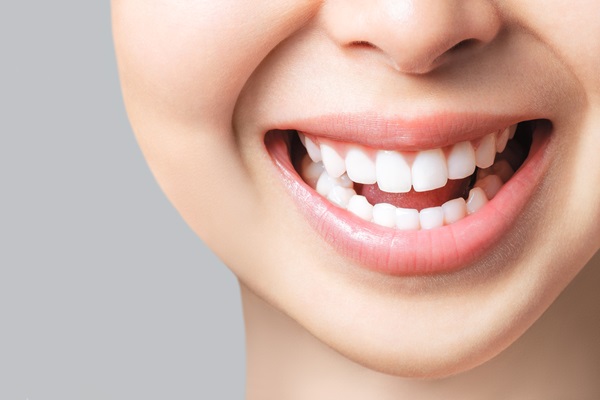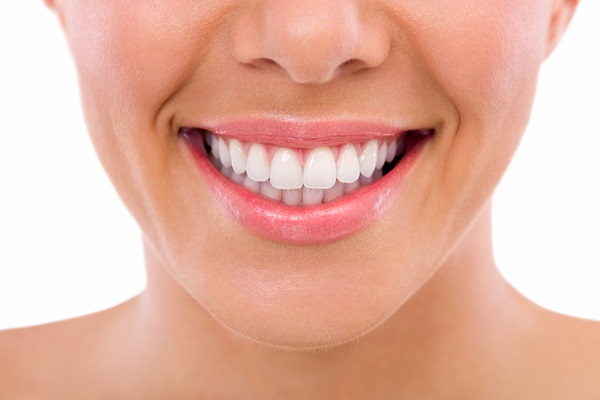Smile Assessment Brooklyn, NY
A smile assessment can enhance your appearance and boost self-confidence. Our team performs an in-depth checkup to diagnose orthodontic concerns. Next, we recommend treatments that straighten and brighten your smile. Orthodontic appliances can also improve oral hygiene and fight tooth decay.
Smile assessments are available at Michael Emanuel DDS PLLC in Brooklyn and the surrounding area. During the evaluation, our team offers guidance about orthodontic treatments. We help families explore their options and make informed decisions. Call us at (718) 635-4822 to learn more.
Smile Assessment Outcomes
During a smile assessment, the orthodontist takes a close look at the patient's mouth. First, they consider bite and jaw alignment. Next, they look for crooked, crowded, or misaligned teeth. The team also assesses the patient's oral health.
Orthodontic problems are not just a cosmetic concern. Crooked teeth or bite problems may increase one's risk of gum disease. Some orthodontic issues might put one at risk for tooth decay or tooth loss. During a smile assessment, the team determines how to improve the patient's oral health.
Afterward, the orthodontist explains the results of the assessment. They share their personalized recommendations for orthodontic care. Then they explain the advantages of each treatment and help patients make a decision.
“Crooked teeth or bite problems may increase one’s risk of gum disease.”
Reviewing Teeth
During the smile assessment, the orthodontist takes photographs and X-rays. These images can help the team assess tooth alignment. Sometimes, the team may notice that the patient's teeth are widely spaced. Gaps between teeth can present some health risks. Food often becomes stuck in the gaps, triggering gum disease.
The team might also spot some tooth crowding, especially along the bottom jaw. Crooked teeth might make one self-conscious about one's smile. They can also interfere with oral hygiene. Plaque, tartar, and food particles can become trapped. Crowded or misaligned teeth are at a higher risk for decay.
Fortunately, orthodontic treatments can help. Braces and clear aligners can close gaps and gently shift crowded teeth. These treatments straighten one's smile and reduce one's risk of tooth decay.
“Gaps between teeth can present some health risks.”
Reviewing Gums
Orthodontic issues are often linked to gum disease. Crooked teeth or bite problems might encourage plaque buildup. Plaque can lead to tooth decay, and decay can spread to the gums. Patients with gum disease are at a higher risk of tooth loss or bite problems. During the assessment, the team takes a close look at the patient's gums. They check for gum disease and loosened teeth. The team determines whether the patient's gums are strong enough to support orthodontic care.
Orthodontic patients need healthy gums. Gum disease can interfere with treatment like braces or clear aligners. If a patient is struggling with gum disease, the team can refer them to the right provider. After treatment, they may be able to continue with their orthodontic care plan.
“Gum disease can interfere with treatment like braces or clear aligners.”
Check out what others are saying about our orthodontic services on Yelp: Smile Assessment in Brooklyn, NY
Examining Molars
Many patients have a bite misalignment. Bite problems can lead to uneven wear-and-tear on the teeth. Patients may develop speech problems or difficulty eating. Some patients might also be at a higher risk for chipped teeth or tooth damage.
Orthodontics can help resolve these problems. During the smile assessment, the team takes a close look at one's bite. First, the team checks the back teeth. They determine whether the patient's molars can support braces. The orthodontist also measures the space at the back of the patient's mouth. If they have problems with their jaw or back teeth, orthodontics may be the answer.
Braces and clear aligners can adjust bite problems. Elastics can help, too. These small rubber bands attach to braces or other orthodontic appliances. Elastics apply force to certain regions of the mouth. They can adjust jaw misalignments and reposition the jaw.
“Bite problems can lead to uneven wear-and-tear on the teeth.”
Questions Answered on This Page
Q. How does orthodontic care improve my oral health?
Q. How does orthodontics improve my teeth?
Q. What is the link between gum health and orthodontics?
Q. How do bite problems affect my oral health?
People Also Ask
Q. What are the pros and cons of braces?
Q. What type of braces are right for my teen?
Q. Braces work by straightening teeth and correcting one’s bite over time.
Frequently Asked Questions
Q. What is a smile assessment?
A. If you would like to improve your oral health, a smile assessment can help. During this appointment, the orthodontic team evaluates your mouth. They check your oral health and ask about your goals. Finally, they recommend treatments that can enhance your smile. Many patients benefit from braces, clear aligners, or retainers.
Q. What happens during a smile assessment?
A. During a smile assessment, the team takes photographs of your mouth. Sometimes, they also perform X-rays or other digital scans. They measure your teeth, assess your bite and check your gums. Afterward, the orthodontist helps you explore your treatment options.
Q. How do I know if I am a good candidate for orthodontics?
A. Orthodontic care might not be right for everyone. Some dental problems can interfere with treatment. During the smile assessment, the team looks at your teeth and gums. They decide whether your mouth is ready to support orthodontics.
Q. What type of orthodontic care is best for me?
A. Each patient's mouth is unique. During your smile assessment, the team considers your individual needs. They help you choose a treatment that meets your goals, preferences, and lifestyle requirements.
Q. What happens if the team decides I am not ready for orthodontics?
A. Sometimes, the team spots a problem during your smile assessment. You might have underlying tooth decay or gum disease. Some patients also have issues with their jawbone, throat, or sinuses. The orthodontist might refer you to another provider for further treatment. A specialized provider can deliver the care you need.
Quality Orthodontic Services Can Transform Smiles
By visiting us as soon as possible, our team can help get you the professional treatment you need.
Definition of Orthodontic Terminology
Call Us Today
A smile assessment gives your oral health a boost. Orthodontic care can increase your self-confidence and prevent dental problems like decay. During your assessment, our team helps you explore your options for orthodontics. Orthodontics has moved past clunky braces and headgear. Modern orthodontics can be slim and discreet. They can help you achieve a brighter, straighter smile within months.
If you are ready to explore your options for orthodontics, let Michael Emanuel DDS PLLC in Brooklyn help. Call us at 718-635-4822 to learn more about our services.
Helpful Related Links
- American Dental Association (ADA). Glossary of Dental Terms. 2021
About our business, license, and website security
- Michael Emanuel DDS PLLC was established in 1998.
- We accept the following payment methods: American Express, Cash, Check, Discover, MasterCard, and Visa
- We serve patients from the following counties: Kings County, New York County, Richmond County, Queens County, and Nassau County
- We serve patients from the following cities: Brooklyn, Manhattan, Queens, Staten Island, and Long Island
- NY (License #30399). View License Information and Specifics
- National Provider Identifier Database (1013165497). View NPI Registry Information
- Healthgrades. View Background Information and Reviews
- Norton Safe Web. View Details
- Trend Micro Site Safety Center. View Details
Back to top of Smile Assessment







